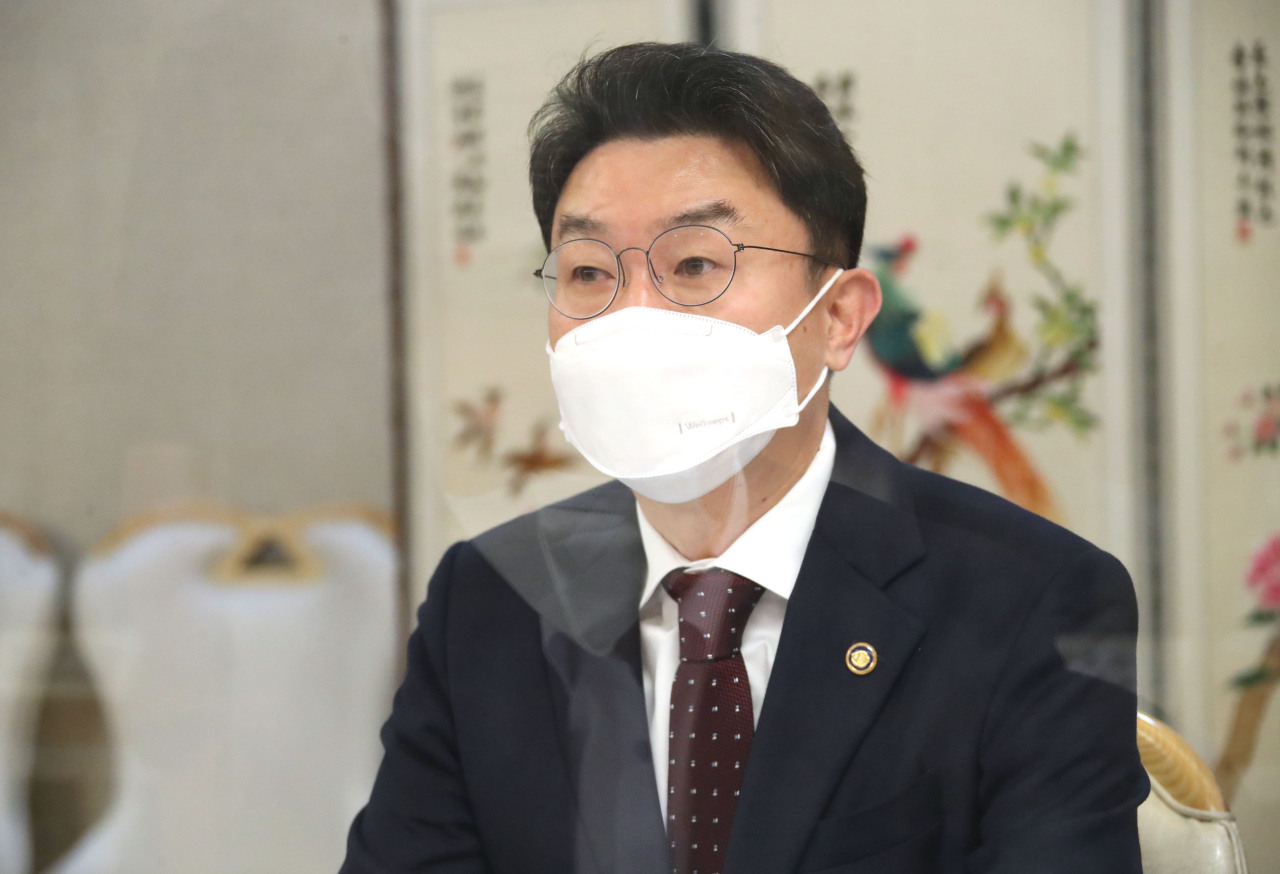[Newsmaker] S. Korea to impose temporary fuel tax cut amid gas price hike
By Choi Jae-heePublished : Oct. 22, 2021 - 13:08

South Korea will temporarily cut fuel taxes to soften the blow of skyrocketing gasoline prices, which put upward pressure on inflation, First Vice Finance Minister Lee Eog-weon said Friday.
“The government will temporarily lower fuel taxes. We’ll finalize further details, including the extent of fuel tax cuts and when the envisioned measure will take effect, as soon as possible,” Lee said, adding that the formal announcement will be made during a government meeting next week.
Along with the temporary fuel tax cut, the government will also introduce a plan to lower tariff rates on imported liquefied natural gas -- currently at 2 percent -- to ease consumer burden stemming from a surge in energy prices, he said.
Tax on gasoline currently stands at 820 won ($0.7) per liter. The government is considering a temporary fuel tax reduction of 10 or 15 percent. Earlier in November 2018, when gas prices rose to as high as 1,690.3 won, the authorities had temporarily slashed fuel taxes by 15 percent.
The latest move came as the nation’s gasoline prices have soared in tandem with international crude prices.
The average gasoline price nationwide stood at 1,724.7 won per liter Monday, marking the highest since December 2014, according to data compiled by the state-run Korea National Oil Corp.
In the meantime, prices of Dubai crude, which take up the largest portion of Korea’s oil imports, spiked to $84 per barrel on the same day, up from an average of $72.63 in September.
Lee attributed the spike in international crude prices to market expectations over a recovery in global crude demand amid the rollout of COVID-19 vaccines and a gradual increase in oil output by the Organization of the Petroleum Exporting Countries-Plus, a coalition of OPEC member countries and 10 non-OPEC oil producers led by Russia, as well as stagnant oil production in the US due to severe hurricanes.
Rising inflationary pressure is another driver of the tax reduction plan, considering petroleum prices commonly lead the consumer price growth.
Consumer prices climbed 2.5 percent on-year in September and the figure is forecast to surpass 3 percent in October due to last year’s low base, according to the Finance Ministry.
Despite surging gasoline prices, the government was confident it would be able to maintain domestic energy supply.
“Eighty million barrels of crude oil have been imported per month without a hitch, while nearly 80 percent of LNG imports are based on long-term contracts with foreign partners,” Lee said.
By Choi Jae-hee (cjh@heraldcorp.com)











![[Today’s K-pop] BTS pop-up event to come to Seoul](http://res.heraldm.com/phpwas/restmb_idxmake.php?idx=644&simg=/content/image/2024/04/17/20240417050734_0.jpg&u=)





![[KH Explains] Hyundai's full hybrid edge to pay off amid slow transition to pure EVs](http://res.heraldm.com/phpwas/restmb_idxmake.php?idx=652&simg=/content/image/2024/04/18/20240418050645_0.jpg&u=20240419100350)

![[Today’s K-pop] Zico drops snippet of collaboration with Jennie](http://res.heraldm.com/phpwas/restmb_idxmake.php?idx=642&simg=/content/image/2024/04/18/20240418050702_0.jpg&u=)